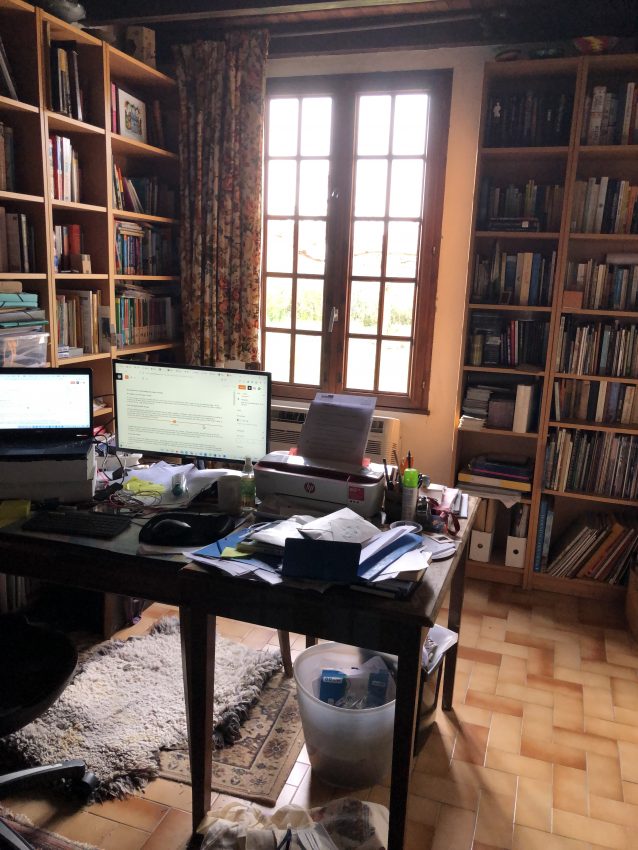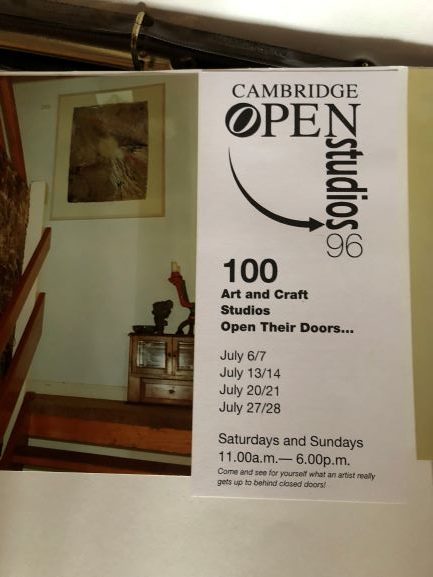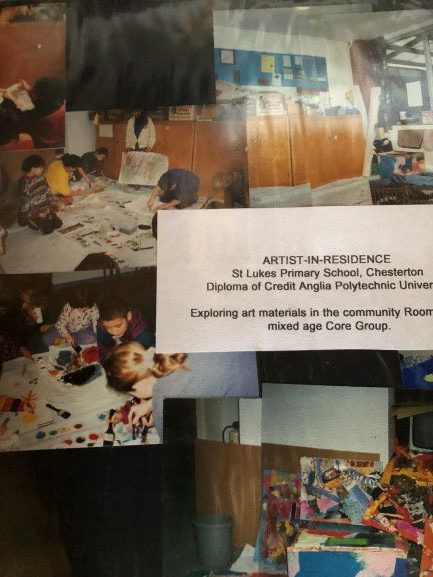No simple way to become a writer
It’s never simply a question of sitting down to write a story. First, you need money, food, a room of your own and time alone. If any writers have all those things without also having paid employment, I haven’t met them yet. You also need to learn your craft, to practise it and develop it – and somehow fund it.

Life and opportunities change
My life changed abruptly and painfully in the 90s after my fiftieth birthday. I left home. I had to find salaried work instead of working as a volunteer. I made new friends but I had to stay connected with old friends as well as care for my family. It was challenging. I discovered I was too old to get a junior job teaching and not considered experienced enough to get a senior post. All the work I’d done in Zambia for artists was disregarded in Britain.
I taught both holiday classes and community education but that didn’t pay. Instead, I retrained in further education and as an artist-in-residence. Finally, I studied for an MA in Women’s Studies and made a video dissertation to find out why being a woman is the way it is! I worked in psychiatric prisons then by a lucky chance I became Head of Art at a foreign language school.
Cash and caring

In the end, I stuck to the things I cared about – supporting creative people, involving myself with human rights and anti-racism, demonstrating against the bombing of Iraq while trying hard to put money aside for my family because I knew I was alone in doing that. I took in students for a while then switched to run a B&B. My children came and went to school and university, my family stayed during the holidays and over Christmas. I worked at Cambridge Artworks making art for its own sake and helping with its business plan. (Selling art and storybooks seldom covers the costs of their production.)
Painting stories and writing stories
It had bothered me for some time that the paintings I made all seemed to be didactic illustrations of my political beliefs. I didn’t like what I was doing but I learned from Zambian artists and from my attendance at the 1989 Havana Biennial that this is a common problem for artists. I changed from making easel art to making installations and exhibited with a friend Krystyna as Hamera and Hartley. This art was much more powerful but couldn’t be sold and still cost money to make. Somehow that change also freed me to try to write my stories. Like many people I had been told at school that you could only do one thing and only have one talent. Either you paint or you write but never both. Nonsense. We all know of friends and people who can do both so why not try?
Writing skills

I love books, I love reading, I liked to write but wasn’t sure that I had the necessary skills. Stories, however, must be told so I followed up the course I did at St Martin’s School of Art by attending Sally Cline’s excellent creative writing class and began to learn how to be a writer. My days were packed full but because stories demand to be told I had to write late at night starting before midnight and working until the small hours.
What was I writing and what happened to my stories?
Stories aren’t plucked out of thin air. They come from the flesh and blood of lived experience even if that is transformed by imagination into something completely new and different. My children’s story had to be shelved. My inexpert attempts to find a publisher had stalled instead I began to write a fictionalised version of my youth in Rhodesia and South Africa. That was also met with disinterest from agents and publishers. I had always managed to be out of step with the times taking personal risks and being a single parent before organisations like Gingerbread existed. It was the same with my books – they weren’t fashionable – read “marketable”. Neither was I – that hasn’t changed either.
The digital world
It was the nineties. The World-Wide-Web had just come into existence and with it a digital world that exploded into literature and books changing readers, writers, agents, publishers and marketing forever. It was an opportunity so wide and open that at first that it narrowed publishers’ ability to take risks. There were so many books fighting for attention that a book that doesn’t trend immediately dies forever and can be a waste of money and time. The digital world turned writers into their own publishers, publicists, agents and bloggers. New skills had to be acquired and effort and work multiplied.
All for love of stories
Creative people have great opportunities but have never worked harder. It is an uncertain and costly literary and visual arts world without easy financial rewards. We write and make art for love. We have stories to tell.I was writing books but where would I find publishers and readers?
4 Comments on “The fateful story of becoming the author of books”
Why do you use the word fateful so negatively? You surely had the ability to write. It was just very unfortunate that you got there after a truly miserable experience . But you made it and carried on being an artist. And found a partner. I was commissioned to write a book in 1989. Had no clue but it was technical stuff I knew . The one time payment got me through a tough period leading to leaving home. The book has been translated to 3 languages andreprinted 3 times. Wrote 3 more. But no more payment and now I’m stuck trying to write about s crazy life.
So let you and me be proud!and carry on writing.
Dear Aviva, Gosh! You made me look up the word ‘Fateful’ and wonder if I had used it correctly. I see that it does imply negative outcomes – I suppose I was thinking more of it being a significant and far-reaching decision to write – a decision without any guarantees of success. I don’t think I thought of that time as miserable so much as surprisingly tough. When you’re in the middle of it all you just get on with it. I do mostly think of myself as lucky and have no desire to swap my life with anybody else. It sounds as if you had a similar experience with writing a book too – so yes! Lets be proud and carry on writing! Any way – here’s to our future successful writing and to meeting each other one day soon!
Ruth, thank you for the motivation this story provides.
Hi Lorna, I’m glad you found it motivating. Another friend told me that writers’ stories about how they write are always interesting. I do remember avidly reading stories about how writers worked in a weekly magazine in the 60s. That’s aeons ago but I think the stories then were much the same as today, especially for women. It’s not easy trying to find the balance between providing and caring for a family and the private and demanding time a creative life needs. Hope you are finding the time to write yourself!